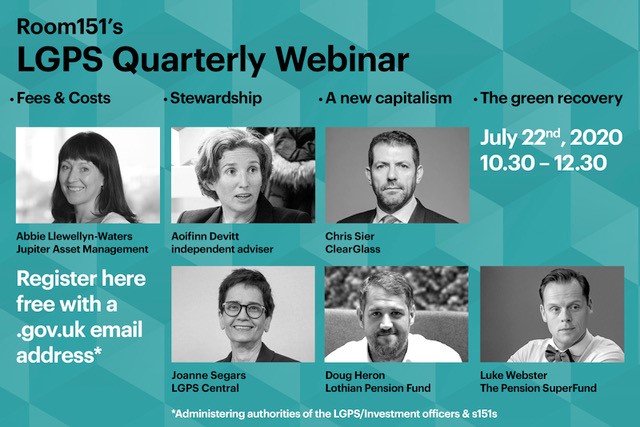
There has been much discussion over passive versus active investment in the Local Government Pensions Scheme. David Evans explains why LGPS Central has its own in-house team.
Since the very early days of pooling, there has been much debate over the advantages and disadvantages of active and passive investment management. Traditional stock picking managers have been under severe pressure due to a combination of disappointing returns and high fees. This has led to a trend by investors to switch from traditional active funds to cheaper passive products and led some to call for an even greater focus on passive investment.
At LGPS Central, we and our partner funds firmly believe that there is a place for both, and that active management can improve returns, add value and is an essential tool to implement asset allocations and to deliver the best possible risk adjusted returns. As a result, in the past two years we have successfully launched a Global Equity Active Multi-Manager Fund as well as an Active Emerging Markets Multi-Manager Fund.
However, the additional costs of active management are always considered carefully and where we believe that it is not possible to gain excess returns through active management, we will seek to work with our partner funds to look at passive or alternative index funds. These are largely managed by the in-house passive equity team.

Passive Equities
The experienced team is made up of four people, two portfolio managers/traders and two analysts. We are currently actively recruiting for an additional portfolio manager to join the team.
We run approximately £5.6bn of our partner fund investment assets across four passive strategies. These consist of a UK Equity Passive Equity Fund, a Global ex UK Equity Passive Fund, a Global Dividend Growth Fund and a Climate Multi-Factor Fund which was launched at the end of last year. These funds are designed to track either traditional, market-capitalisation based indexes or, in the case of the Global Dividend and Climate Multi-Factor funds, alternative or strategy type benchmarks.
On a daily basis, the team are busy dealing with corporate actions, dividend payments, implementing the daily changes to the benchmark announced by index providers covering the more than 3,500 individual companies held within the funds. Additionally, we will be trading any contributions or redemptions to the funds, monitoring risk, attributing fund returns, analysing trading performance and preparing regular fund reports.
At the present time, thanks to the robust IT systems and the system of enhanced communication and support that has been rolled out by LGPS Central, the team are all successfully able to manage the funds, working remotely.
Why in-house?
You may be wondering why we would do all of this in-house when we face fierce competition from several large, well-resourced and experienced external asset management firms that could easily manage passive funds on our behalf.
Well, firstly, LGPS Central already had a dedicated in-house team in place, with team members transferring from one of our partner funds at the time of the company’s launch in April 2018. The team has many years’ experience in managing index and factor-based strategies, so we’re well-placed to develop that work within the pool. Additionally, with the in-house team working exclusively on behalf of partner funds, products can be tailored to their specific requirements.
One area where we are able to do this is responsible Investment. At LGPS Central, we have developed a responsible investment and engagement framework that has been specifically designed to be consistent with the investment beliefs and RI policies of our eight partner funds clients, including the requirement to engage with companies and to consider certain ESG and climate issues that are of particular relevance to them. Additionally, our partner funds have contributed to our own voting principles which are applied to all of our investment products rather than using the voting policy of a third-party asset manager.
The costs of managing passive and factor-based strategies internally also compare extremely favourably to similar products offered by other asset managers and, in some cases, further cost savings for our partner funds can be achieved.
Finally, one of the original objectives of pooling was “to develop internal investment management capabilities” and “to provide wider investment choice and market competition”, and we feel that this is one asset class where we can be true to those aims.
Climate Multi-Factor Fund
A recent fund launch provides a good example of how we were able to tailor a product to the individual requirements of partner funds and were able to widen investment choice.
In October 2019, we successfully launched the LGPS Central All World Equity Climate Multi-Factor Fund. This fund is designed to track the performance of the FTSE All-World Climate Balanced Comprehensive Factor Index.
Rather than excluding specific stocks or sectors, the index uses FTSE’s tilt methodology to give greater exposure to companies that score well against five chosen style factors and reduces exposure to companies that are involved in the fossil fuel industry and emit high levels of CO².
Additionally, the index methodology rewards companies that are well positioned to take advantage of a low carbon economy by increasing their index weighting.
The launch followed months of discussions with our partner funds who were keen for us to develop an alternatively weighted index fund that targeted a range of traditional style factors that included value, momentum and low volatility. Some of our partner funds were also keen for us to combine this multi-factor methodology with an approach that addressed the risks associated with climate change.
Over the course of several months, the advantages and disadvantages of a variety of benchmarks were reviewed with partner funds. Numerous benchmarks were compared for factor allocation, sector and country weightings, turnover and performance.
Other issues that were considered included whether to implement a global or a regional strategy, process transparency and whether there were live assets currently managed against the index. As climate change factors were a key consideration, the pros and cons of whether to exclude certain sector and industry groups were weighed up against the process of re-weighting a market-cap benchmark according to key climate criteria.
Taking all of these issues into account, the index that was eventually selected for this product was the FTSE All World Climate Balanced Comprehensive Factor Index.
The fund was launched with initial assets under management of £2.1bn and saw two of our partner funds supporting the launch as initial investors. Since that time, we have continued to see interest from more of our partner funds and expect to see further investment into this product. As of 31 May 2020, the fund continues to perform in line with its benchmark as expected.
All of this goes to demonstrate how working collectively with our partner funds enables us to develop investment products that are specifically designed with their needs and requirements in mind.
Future
In the coming months, we will continue to work with our partner funds to look for ways to reduce costs but also to deliver innovative and customised products that help them meet their current requirements. At the same time, we will endeavour to maintain and deliver the overall quality, low tracking error and fund performance of our existing funds and deliver the first-class in-house service that they have come to expect.
David Evans is investment director for passive equities at LGPS Central.
FREE monthly and weekly newsletters
Subscribe to Room151 Newsletters
Monthly Online Treasury Briefing
Sign up here with a .gov.uk email address
Room151 Webinars
Visit the Room151 channel













